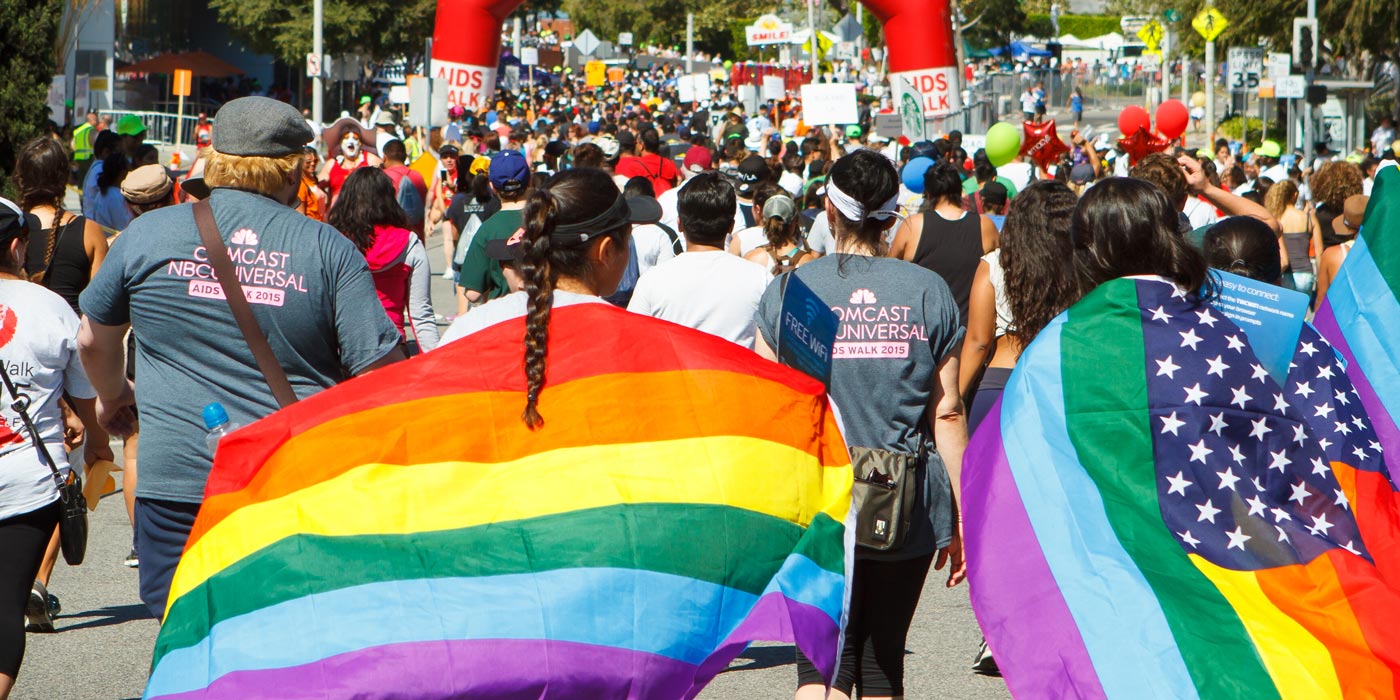
Media Contact:
Joe Hui
Director of Communications
jhui@aplahealth.org
213.201.1342
7.27.2021
APLA Health today applauded Governor Gavin Newsom and the California Legislature for taking historic action to improve the health and wellbeing of older people with HIV. SB 258 – the HIV & Aging Act authored by Senator John Laird (D-Santa Cruz) – sailed through the Legislature with no “no” votes and was signed by Governor Newsom last week. The legislation designates older people with HIV as a population of “greatest social need” and will help to improve access to a wide range of services and supports for older adults. Following Illinois in 2019, California is only the second state in the country to make this designation. The legislation was co-sponsored by APLA Health, Equality California, SAGE, and the Los Angeles LGBT Center.
In addition, the FY 2021-22 State Budget includes $5 million – the largest state investment to date – to establish up to 5 demonstration projects to address the unique medical and support service needs of older people with HIV. The demonstration projects will be modeled after the Golden Compass Program, a highly successful program for people with HIV over 50 in San Francisco. California Legislative LGBTQ+ Caucus Chair Assemblymember Evan Low (D-Silicon Valley) and Vice Chair Senator Susan Talamantes Eggman (D-Stockton) championed this budget request from APLA Health and the statewide End the Epidemics coalition, with strong support from other members of the LGBTQ+ Caucus and legislative leadership.
“Thanks to effective treatments, people with HIV are living longer than we could have ever imagined just a few decades ago and now a majority of people with HIV in California are over 50 years old,” said APLA Health Chief Executive Officer Craig E. Thompson. “Unfortunately, our current health and social service systems are not yet prepared to address the unique needs of this population. Many older people with HIV are long term survivors of the AIDS epidemic. They have lost countless loved ones and entire networks of social support. They continue to face discrimination and alarming levels of stigma. These historic actions will help to ensure that people aging with HIV have the resources and support they need to thrive.”
While older people with HIV confront many of the same challenges that are common in the general aging population, they also face a unique set of challenges because of their HIV status. Older people with HIV are more likely than their HIV-negative counterparts to have multiple comorbidities including certain cancers, cardiovascular disease, and bone loss. They also face a number of behavioral health challenges, including higher rates of depression, anxiety, and substance use. Older people with HIV also face structural inequities, including pronounced social isolation and higher rates of poverty than their non-positive peers, along with systemic barriers to accessing culturally competent aging services and supports.
By designating older people with HIV as a population of “greatest social need,” the California Department of Aging and local agencies on aging will be required to conduct outreach and identify effective strategies to ensure that people with HIV have access to a wide range of services and supports for older adults. These services include congregate and home-delivered meals, senior centers, caregiver support, transportation, health promotion, and benefits enrollment.
In conjunction with these efforts, the demonstration projects will support the development of innovative programs and services to address the unique medical and non-medical needs of people aging with HIV, with a particular focus on Black, Indigenous, and people of color and other vulnerable communities. Each demonstration project will include robust evaluation and a plan for disseminating lessons learned in order to strengthen ongoing programs.
“Earlier this year, the Newsom Administration demonstrated its commitment to supporting older Californians with the launch of the state’s first-ever Master Plan for Aging,” continued Thompson. “Now, with these actions, the Governor and Legislature have made it abundantly clear that they are committed to equity and ensuring that people aging with HIV are not left behind. We look forward to working with our state and local partners to ensure that all Californians aging with HIV have the support they need to age with dignity.”
###
APLA Health (formerly AIDS Project Los Angeles) restores dignity and trust within underserved communities by providing world-class LGBTQ+ empowering healthcare, HIV specialty care, food, housing, and other essential support services. Since our founding in 1983, APLA Health has remained steadfast in our commitment to ending the HIV epidemic in our lifetime. We operate eight Federally Qualified Health Center (FQHC) locations in Los Angeles County, serving more than 19,000 people annually, regardless of ability to pay. Our list of comprehensive services includes LGBTQ+ primary care, dental care, behavioral healthcare, HIV specialty care, and Out Here Sexual Health services (PrEP, STD screening & treatment, DoxyPEP, and PEP). For people with HIV, our wraparound support services include housing assistance through the Alliance for Housing & Healing and nutritional support via the Vance North Necessities of Life Program, the largest food pantry in the United States for people with HIV, distributing over 800,000 meals annually. APLA Health’s annual fundraisers include AIDS Walk LA — the world's first and oldest AIDS Walk — and Best in Drag Show. We are leaders in advocating for policy and legislation at the local, state and Federal levels that positively impact the LGBTQ+ and HIV communities. For more information, visit aplahealth.org.